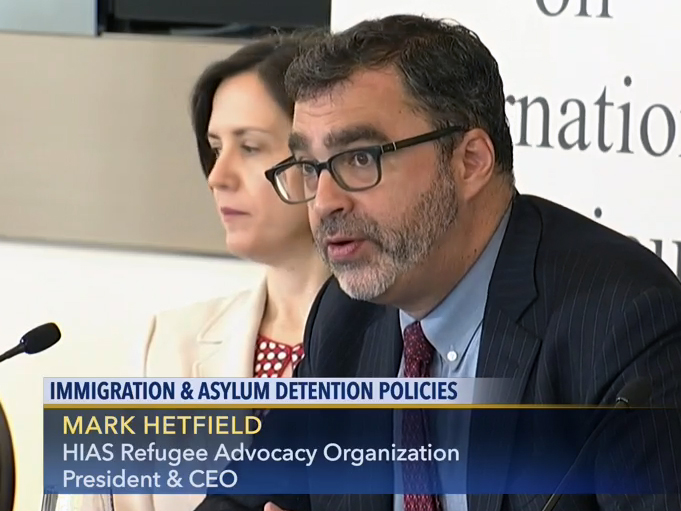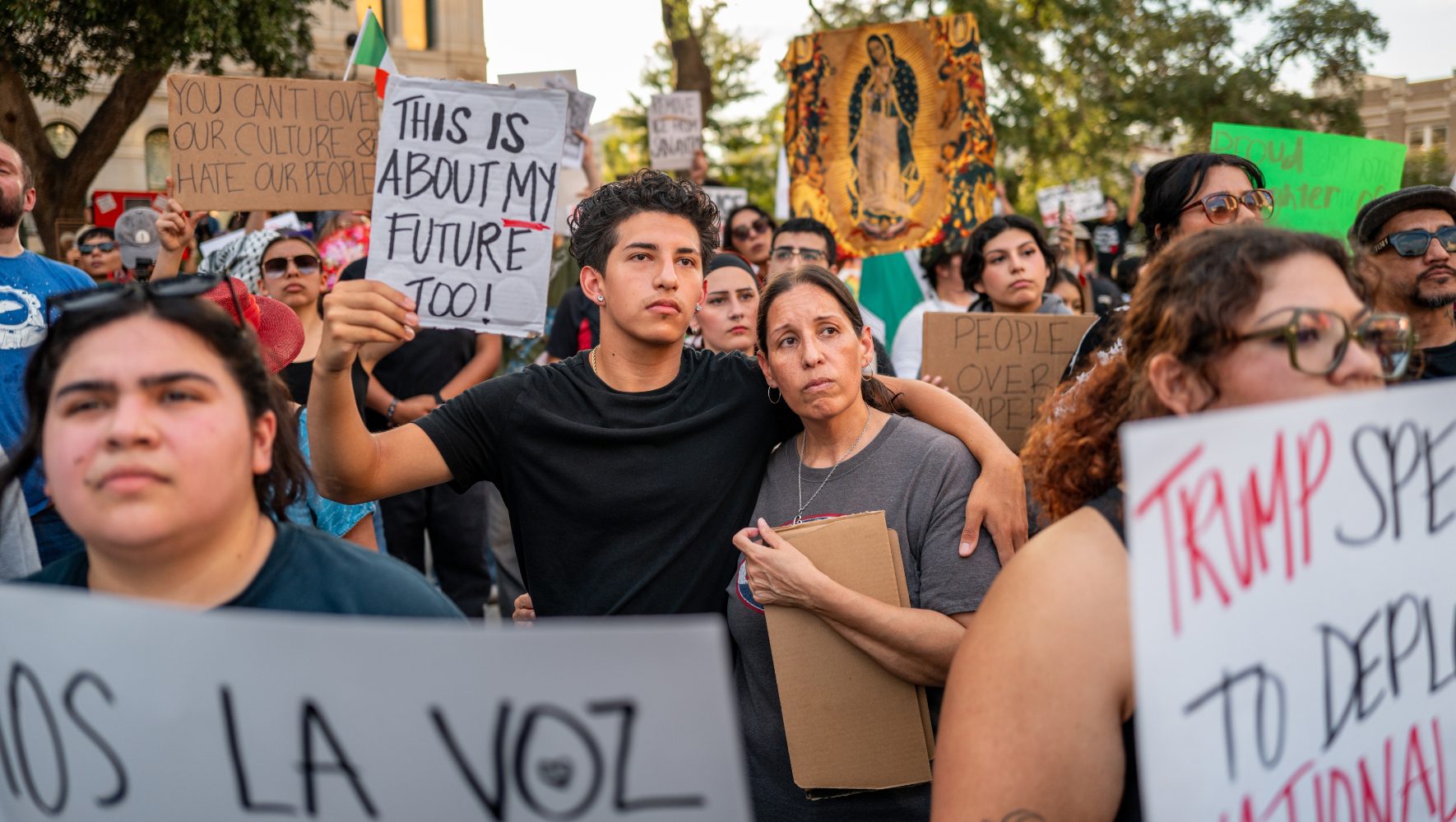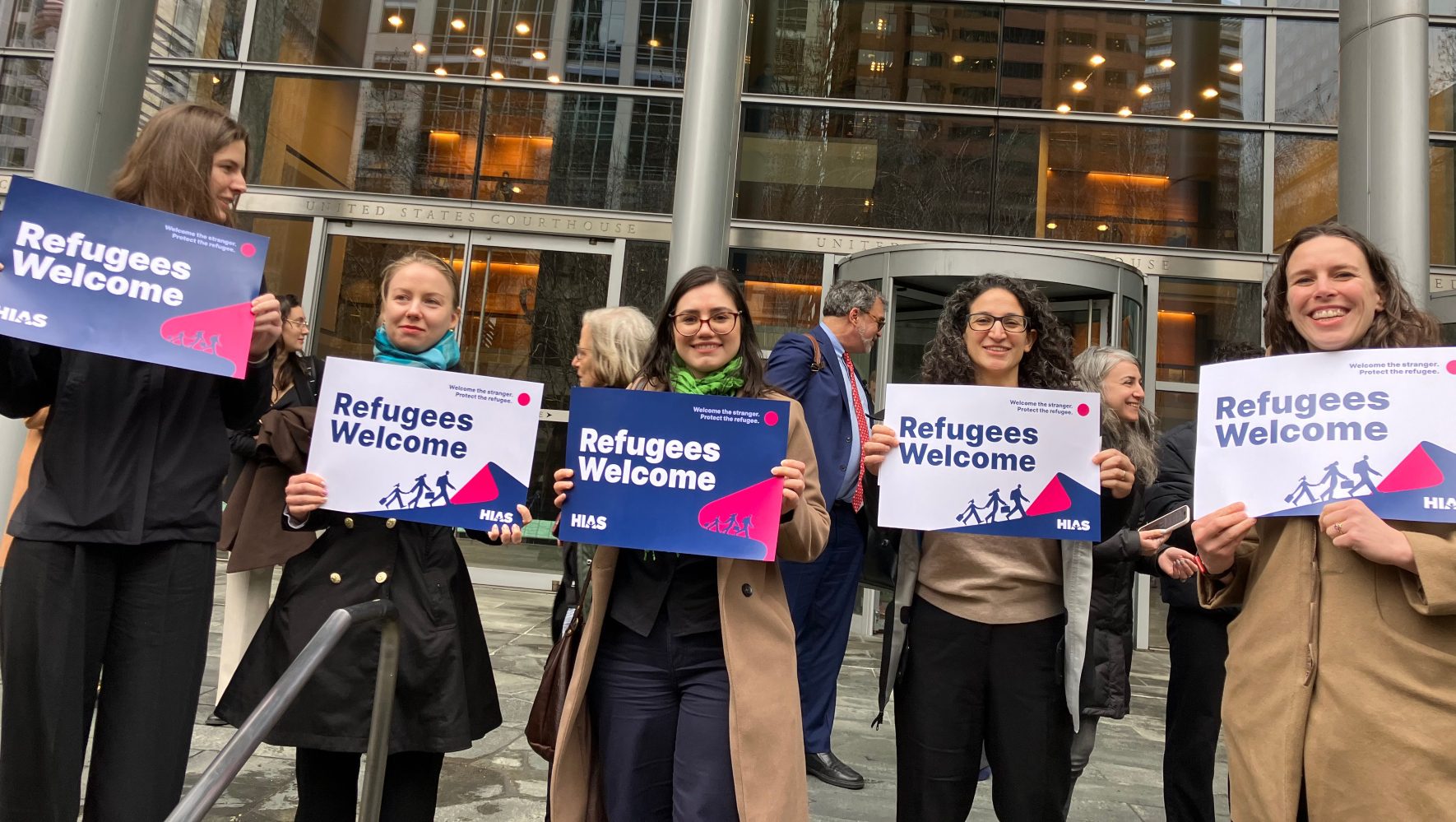Asylum Seekers Still at Risk, Report Finds
By Rachel Nusbaum, HIAS.org
Aug 03, 2016

HIAS President and CEO Mark Hetfield speaking during a panel discussion on expedited removal and the detention of asylum seekers in Washington, D.C. on August 3, 2016.
(CSPAN-2)
The U.S. government’s expansion of a process known as ‘expedited removal’ is putting bona fide refugees and asylum seekers at risk, according to a newly issued report.
“Major problems in processing and detention that start the moment asylum seekers enter the United States,” place persecuted people whom we are supposed to be protecting at great risk, according to Barriers to Protection: The Treatment of Asylum Seekers in Expedited Removal, a report released Tuesday by the U.S. Commission on International Religious Freedom.
Barriers to Protection examines whether current processes in the United States are managing to identify and protect bona fide refugees and asylum seekers who might otherwise be returned to their countries of origin, at great risk to their own safety and in violation of international agreements that protect the rights of refugees.
The report updates a study done by USCIRF more than a decade ago, when expedited removal was a relatively new procedure. HIAS President and CEO Mark Hetfield directed the 2005 USCIRF report.
Under international law, those fleeing persecution at home based on their race, religion, nationality, membership in a particular social group or expression of their political opinions are to be protected, not returned. In the expedited removal process, however, foreign nationals can be returned to their countries of origin without a hearing, unless they establish a credible fear of persecution or torture.
“More than 50,000 unaccompanied children from Central America crossed into the U.S. from Mexico in fiscal year 2014 alone. We owe it to those kids to ensure they won’t be sent back into an unsafe situation by mistake or oversight.”
Many of those children come to the U.S. from the Northern Triangle region of Central America, home to three of the most dangerous countries in the Western Hemisphere: El Salvador, Honduras and Guatemala.
“It's the responsibility of the United States to lead by example and ensure that those who need protection actually get it. Our example is particularly needed during the biggest global refugee crisis since World War II, on the eve of the September summits called by the UN Secretary General and President Obama," Hetfield said.
Hetfield joined a conversation at Jones Day law firm in Washington, D.C. to discuss the state of protection for asylum seekers in the United States today. The event marked the launch of the new USCRI report as well as a new report from Human Rights First about increased detention of asylum seekers.
Panelists discussed some of the challenges facing those seeking to obtain protection in the United States.
Hetfield said that the 2005 study found major gaps, including an alarming number of cases where critical information about how to express fears of return was never communicated. “There were profound, systemic issues that could have been addressed after the last report, but weren’t,” Hetfield said. “We found immigration officers not following their own procedures over 70% of the time.”
“We also found that facilities where asylum seekers were held were equivalent to jails, or in many cases were jails and prisons. In some cases, asylum seekers were held alongside prisoners in these jails,” Hetfield said.
The reports come at a critical time for refugee and asylum seeker issues, weeks before a UN summit on refugees and migrants will bring the global community together in New York City. As the world gathers to find solutions to the great global displacement issues of our time, and President Obama meets with other heads of state to ask them to make new commitments to help refugees and asylum seekers around the world, the U.S. should look closely at its own policies and commit to ending practices that put asylum seekers at risk.
“Since the world is watching, U.S. leadership has to start at home,” said Leslie Velez, senior protection officer with the UN refugee agency.



